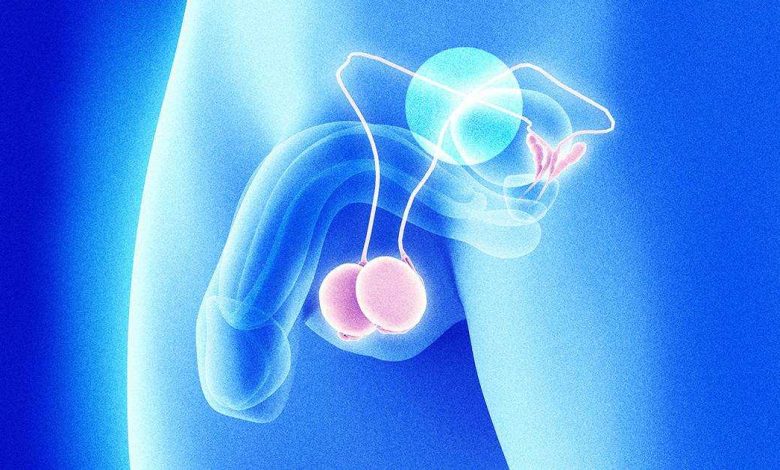Ulcers on the male genitals: What's it, causes, symptoms, diagnostics, treatment, prevention

Genital sores – male; Sores – male genitals; Ulcers – male genitals
Ulcers on the male genitals: what is this
Ulcers on the male genitals can cause anxiety and embarrassment. In some cases, the appearance of sores can be a symptom of an infection., sexually transmitted (STI). However, ulcers can also be caused by other factors., such as skin irritation or injury. In this article, we will look at the reasons, symptoms and treatment of ulcers on the male genital organs.
Causes of ulcers on the male genital organs
Infections are a common cause of genital ulcers in men., Sexually Transmitted Infections, such as:
- Genital herpes - small, painful blisters , filled with clear or yellowish liquid.
- Genital warts are raised or flat, flesh-colored patches, which may look like the top of a cauliflower.
- Soft chancre - a small bump on the genitals, which turns into an ulcer. within a day after the appearance
- Syphilis is a small, painless, open sore or ulcer [called chancre] on the genitals.
- Granuloma groin – small, fleshy, red bumps appear on the genitals or around the anus.
- Venereal lymphogranuloma - small painless ulcers on the male genital organs.
Other types of ulcers on the male genitals may be caused by a rash, like psoriasis, Molluscum Contagiosum, allergic reactions and infections, not sexually transmitted.
For some of these problems, ulcers may also be found elsewhere on the body., eg, in the mouth and throat.
Other common causes of male genital ulcers:
- Folliculitis (hair follicle infection)
- Burrowing hair
- Friction or injury from sexual intercourse
- Allergic reactions to condoms, lubricants and other products
- Autoimmune diseases, such as Behçet's disease or pemphigus vulgaris
Symptoms of ulcers on the male genital organs
Symptoms of male genital ulcers may vary depending on the underlying cause.. Some common symptoms may include:
- Pain or discomfort in the affected area
- Redness, swelling or inflammation
- Fluid-filled blisters or sores
- Itching or burning
- Eschar or crust
When to contact a healthcare professional
If you notice sores on your genitals or experience any unusual symptoms, it is important to contact a healthcare professional for examination. This is particularly important, if you have had unprotected sex or suspect, that an STI could become infected. Timely diagnosis and treatment will help prevent the spread of infection and reduce the risk of complications..
Questions, that your doctor may ask
If you see a doctor to evaluate ulcers on the genitals, they may ask you a series of questions, to help determine the root cause. Some common questions may include:
- When did you first notice the ulcers?
- Have you had unprotected sex?
- Have you been diagnosed with any STIs in the past?
- Do you have any other medical conditions or are you taking any medications?
- Have you changed sexual partners recently??
Diagnosis of ulcers on the male genital organs
Diagnosis of ulcers on male genital organs may include a physical examination, blood tests or a sample of affected tissue. Your health care provider may also ask about your sexual history and may recommend getting tested for STIs. In some cases, a biopsy may be required to confirm the diagnosis..
Treatment Options for Ulcers on Male Genitals
Treatment options for male genital ulcers depend on the underlying cause. For STIs, treatment may include antivirals or antibiotics. Your doctor may also recommend pain relievers or topical treatments, to help manage symptoms. If ulcers are caused by an autoimmune disease, treatment may include immunosuppressants.
Home treatment for ulcers on the male genital organs
Despite, that seeking medical attention is very important, there are also some steps, things you can do at home, to manage symptoms and speed up recovery. Some home treatments for male genital ulcers may include:
- Keeping the affected area clean and dry.
- Avoid sexual activity, until the sores heal.
- Use cool compresses or sitz baths, to reduce inflammation and pain.
- Avoid tight clothing or underwear, which may cause irritation.
- The use of over-the-counter topical agents, such as petroleum jelly or hydrocortisone cream, as directed.
Prevention of ulcers on the male genital organs
A number of strategies can be used to prevent male genital ulcers. Some prevention tips may include:
- Use of condoms or other barrier methods during intercourse.
- Limitation of sexual partners or choice of partners, tested for STIs.
- Use mild, fragrance-free soaps and avoid harsh chemicals or irritants.
- Keeping the genital area clean and dry.
- Do not share personal items with others, such as towels or clothes.
Conclusion
Ulcers on the male genitals can cause anxiety and discomfort, but timely diagnosis and treatment can help manage symptoms and prevent complications. If you notice any unusual symptoms or suspect, that an STI could become infected, it is important to contact a healthcare professional for examination. Taking steps to prevent ulcers and practicing safe sexual habits, you can protect yourself and reduce the risk of infection.
Used sources and literature
Eyebrown MH. Genital skin and mucous membrane lesions. In: Bennett JE, Dolin R, Blaser MJ, eds. Mandell, Douglas, and Bennett’s Principles and Practice of Infectious Diseases. 9th ed. Philadelphia, PA: Elsevier; 2020:chap 106.
Centers for Disease Control and Prevention website. Sexually transmitted infections treatment guidelines, 2021. www.cdc.gov/std/treatment-guidelines/default.htm. Updated July 22, 2021. Accessed August 31, 2021.
Link RE, Tang N. Cutaneous diseases of the external genitalia. In: Party AW, Dmochowski RR, Kavousi LR, Peters CA, eds. Campbell-Walsh-Wein Urology. 12th ed. Philadelphia, PA: Elsevier; 2021:chap 59.
Scott GR. Sexually transmitted infections. In: Ralston SH, Penman ID, Strachan MWJ, Hobson RP, eds. Davidson’s Principles and Practice of Medicine. 23rd ed. Philadelphia, PA: Elsevier; 2018:chap 13.
